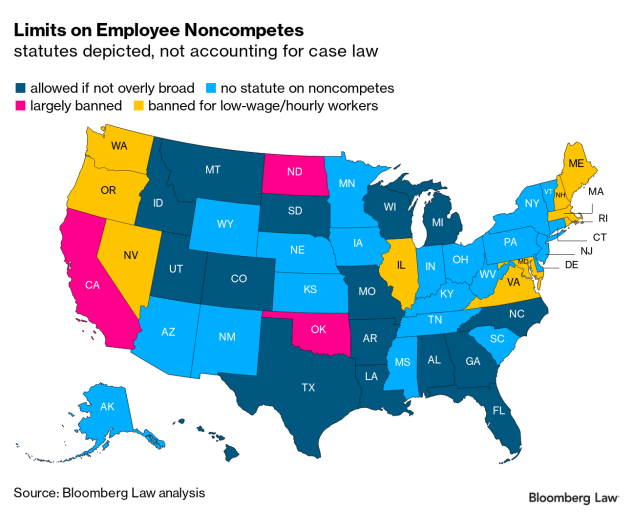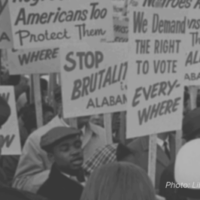The movement toward shielding low-wage workers from job-mobility restrictions could be gaining more bipartisan appeal, as a handful of GOP-majority state legislatures consider mirroring their Democratic counterparts’ recent efforts.
Iowa is close to becoming the first state with a Republican-led legislature to ban employee noncompetes specifically for low-wage workers. A similar GOP-sponsored proposal is pending in West Virginia, based on model legislation unveiled last July by the non-partisan Uniform Law Commission.
“There’s been a lot of attention paid to making sure that lower-wage employees are not subject to noncompetes. There seems to be broad political consensus on that,” said Michael Elkon, an Atlanta-based labor and employment attorney with Fisher & Phillips LLP.
Noncompetes, which bar employees from going to work for a competing business, are one of several types of restrictive employment contracts that businesses sometimes require employees to sign during the hiring process.
Their stated intent is to protect company trade secrets or investment in specialized training. But worker advocates, news reports, and politicians have raised concerns that lower-wage and hourly workers with no access to trade secrets are unfairly blocked from switching to better paying jobs and advancing their careers.
Research suggests 18% of the U.S. workforce is bound by a noncompete, and 38% of workers have signed one previously.
How often employers attempt to enforce noncompetes against low-wage workers is difficult to measure, said Russell Beck, attorney at Beck Reed Riden LLP in Boston, whose practice focuses largely on employment covenants. Enforcement sometimes happens through civil litigation, but can also take the form of a verbal reminder or a cease-and-desist letter to the employee, he said.
“There are a lot of low-wage workers bound by noncompetes and complying with them, even when they might not in fact be enforceable,” Beck said.
Bipartisan Efforts
In Congress, there have been signs of Republican support for restricting noncompetes, including introduction of the Workforce Mobility Act, a proposal with bipartisan Senate and House sponsors, including Sens. Chris Murphy (D-Conn.) and Todd Young (R-Ind.).
But success at enacting noncompete restrictions has been largely limited to Democrat-controlled statehouses.
At least 10 states have enacted laws that block employers from contractually restricting low-wage or hourly employees’ ability to leave and go work for a competitor. Nevada joined that list last year, as Illinois and Oregon put stricter parameters on their noncompete laws.
How the states define a “low-wage worker” varies widely, with New Hampshire setting the threshold at income less than two times the federal minimum wage, while Oregon and Washington state put the line at roughly $100,000 per year.
The Iowa bill, which passed the state Senate last year and is awaiting a House floor vote, would ban noncompetes for employees making less than $14.50 per hour.
The release of model legislation from the Uniform Law Commission could help nudge GOP-led state legislatures toward adopting similar noncompete restrictions, said Najah Farley, a senior staff attorney at the National Employment Law Project.
The commission has “much more focus on direct relationships they have with legislatures,” she said, whereas the issue’s primary champions in the past have been worker advocacy groups that are likely to have less influence with Republican lawmakers.
The labor market turbulence that workers have experienced in the Covid-19 pandemic also could help motivate state legislators to consider limiting noncompetes, Farley said.
“Especially in the wake of the pandemic people want to see an economy that’s working for workers and not just those who are at the top of the economic scale,” she said.
The state legislative activity also comes as the Federal Trade Commission considers nationwide regulation to limit noncompetes—a process still in the research stage, Beck said. President Joe Biden called on the FTC last July to ban or limit employee noncompetes as part of a sweeping executive order aimed at improving competition in the economy.
Read the full article at Bloomberg Law




